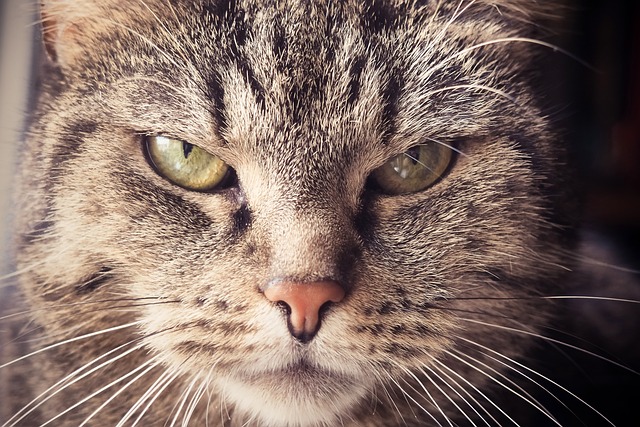Once upon a time, the privilege of keeping a Siamese cat was reserved only for royalty. In modern-day Thailand, these regal cats, known for their stunning appearance and playful personalities, were said to be guardians of temples. According to the Siamese Cat Society, they were lavishly cared for while protecting the souls of high-ranking individuals who had passed away.
Today, you don’t need royal lineage to enjoy the companionship of a Siamese cat. However, it’s important to note that, despite their gentle nature, Siamese cats are not typically known for being laid-back, according to Annette Louviere, DVM at Wisdom Health Genetics.
Siamese cats are recognized for their distinctive physical features, including large ears, striking baby-blue eyes, and a slim, sleek build with dark color points on their ears, face, paws, and tail. The traditional Siamese colors are seal, chocolate, lilac, and blue point, but there are also variations such as the tabby-coated Lynx Point Siamese.
Caring for a Siamese
Siamese cats are highly intelligent and playful, requiring daily enrichment to prevent boredom and mischief. They form strong bonds with their human caretakers and may become shadow-like in their companionship. Adopting a Siamese cat involves dedicating time to one-on-one bonding through interactive play and training. They are known to be spunky, talkative, and outgoing, expressing their need for attention vocally.
Siamese Health Issues
Siamese cats, with an average lifespan of 15 years but capable of living into their 20s, are prone to certain health conditions. It’s advisable to consider pet insurance for Siamese kittens due to their susceptibility to various issues:
- Pica: Siamese cats, especially wool-sucking, may exhibit pica, the tendency to eat non-food items. Ingesting inappropriate items could lead to poisoning or internal obstructions.
- Asthma: Similar to human asthma, cat asthma in Siamese cats can cause symptoms like coughing, difficulty breathing, and wheezing. Management may include reducing environmental triggers and, in severe cases, using inhalers or oral medications.
- Amyloidosis: Siamese cats may be genetically predisposed to amyloidosis, a condition involving abnormal deposition of the fibrous protein amyloid, potentially leading to organ failure.
- Hereditary Retinal Degeneration: While more common in other breeds, Siamese cats may experience genetic retinal degeneration, resulting in night blindness and eventual loss of vision.
- Dental Disease: Like all cats, Siamese cats can develop dental issues. Regular teeth brushing and dental check-ups are essential for oral health.
What To Feed a Siamese
A high-quality commercial diet approved by AAFCO (Association of American Feed Control Officials) provides essential nutrients. Consulting with a veterinarian helps determine the right diet based on the cat’s age, lifestyle, and ideal body condition. Siamese cats may tend to overeat, so free-feeding is not recommended.
Behavior and Training Tips for Siamese Cats
Siamese cats are known for their spunky and talkative nature. Positive reinforcement works best in training, and they respond well to interactive activities. Siamese cats can be trained for harness and leash use, as well as other tricks. They enjoy exploring on a leash, clicker training, puzzle feeders, and various interactive toys.
Siamese Grooming Guide
Siamese cats have short, low-maintenance coats that don’t require special grooming. Weekly brushing is recommended, and attention-seeking Siamese cats may even enjoy more frequent grooming sessions. There’s no need for special bathing or skin care, but any signs of overgrooming or skin irritation should prompt a vet visit. Eye and ear care is minimal, but any abnormalities should be checked by a veterinarian.
Considerations for Pet Parents
Siamese cats, often referred to as “Velcro cats,” crave attention and prefer being with their human companions. Providing interactive toys, food puzzles, window perches, and cat trees helps reduce boredom. Siamese cats are known for their vocal nature, and appropriate care results in a loving cat that brings joy and energy to the household.
Siamese Cat FAQs
Are Siamese cats hypoallergenic? While no cat is truly hypoallergenic, Siamese cats, with their short fur and minimal shedding, may be suitable for individuals with allergies. Consultation with a doctor is recommended before adopting.
Is a Siamese cat a good pet? Siamese cats make excellent pets for those seeking an affectionate feline with a vibrant personality. They generally get along well with children and dogs.
Are Siamese cats cuddly? Yes, Siamese cats are known for their love of affection. They often form a special bond with one caregiver but are willing to cuddle with anyone willing to give attention.
In conclusion, welcoming a Siamese cat into your home requires dedication to play and socialization. With proper care, these intelligent and affectionate cats can become beloved members of the family.



